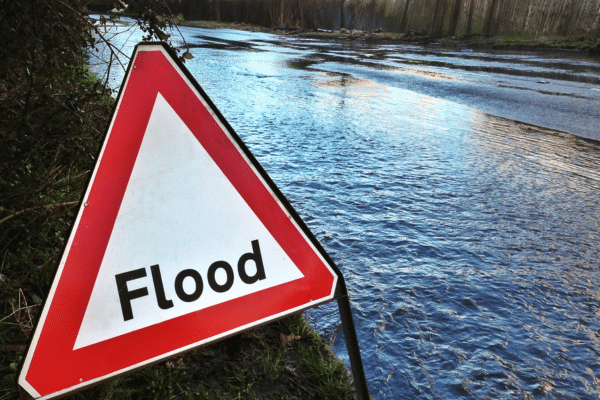UK-EU trade challenges – have your say!
Crowe UK have collaborated with Getlink (the operator of the Channel Tunnel) and ChannelPorts on a short survey addressing the challenges of UK-EU trade for businesses. Crowe UK would really appreciate your thoughts. By taking part you’ll be entered into a prize draw to win a £100 (€100) Amazon voucher. https://security-uk.m.mimecastprotect.com/ttpwp/#/enrollment?key=a9d6801f-4206-4bfe-8744-46c2b9e587ae
Happy International Customs Day 2025!
The World Customs Organization (WCO) officially established International Customs Day in 1983, celebrated annually on 26 January. This year’s theme is ‘Customs Delivering on its Commitment to Efficiency, Security, and Prosperity’. Customs authorities worldwide will host various events and activities to highlight their role in facilitating global trade and ensuring border security.
CBAM Registry – portal access for non-EU operators
The EU Commission has launched the Carbon Border Adjustment Mechanism (CBAM) third country operators’ portal, allowing non-EU businesses to upload their emissions data directly to the CBAM Registry. Businesses only have one year left before the definitive period begins in 2026.
999L waiver code to be removed for exports
From 1 February 2025, waiver codes 999L and Y999 will no longer be accepted on export declarations. Initially scheduled for removal in 2024, HMRC extended their use to allow traders more time to transition their export declarations from CHIEF to CDS. Both codes were removed for imports last year.
CPTPP – can it help your business?
The UK has officially joined the Comprehensive and Progressive Agreement for Trans-Pacific Partnership (CPTPP), with the accession protocol entering into force in December 2024.
This membership allows the UK to trade with Japan, Singapore, Chile, New Zealand, Vietnam, Peru, Malaysia, Brunei and Australia under CPTPP terms. The remaining two members, Canada and Mexico, have not yet ratified the UK’s accession.
What is CPTPP?
First established in 2018, CPTPP is a trade and economic integration agreement between 12 member countries, collectively representing a population of 500 million people and accounting for 14.4% of global GDP.
CPTPP provides comprehensive tariff elimination and reduces trade barriers between members. Over 99% of UK goods exported to CPTPP members are eligible to be imported free of customs duty.
What are the benefits for the UK?
Among the existing 11 members, only Malaysia and Brunei did not have any bilateral trade agreement with the UK prior to CPTPP. Both countries will now be able to benefit from enhanced access to the UK market, and vice versa. The Department for Business and Trade (DBT) forecasts that UK exports to CPTPP member countries will increase by 65% by 2030, equating to an increase of £37 billion. Beyond tariff removal, CPTPP also includes provisions on services, mobility, digital trade, investments, and customs cooperation.
Several other countries have submitted formal applications to join CPTPP, including Costa Rica, China, Taiwan, Ecuador, Uruguay, Ukraine and Indonesia. As the group looks to expand in the coming years, members can expect increased market access, strengthened trade relations, and greater investment opportunities.
What are the differences between CPTPP and other FTAs?
CPTPP can potentially offer UK businesses more advantageous terms in comparison to pre-existing trade agreements. However, this is not always the case, and available types of tariff preference should be evaluated on a case-by-case basis.
Cumulation
CPTPP’s flexible cumulation rules allow for materials from any member country to be considered as originating when determining the preferential origin of the final product. This is more straightforward and accessible than the more intricate cumulation rules often found in other Free Trade Agreements.
Rules of Origin
In order to claim preferential tariff treatment, it must be established that the goods are in fact originating from another member country. It is important to note that the Rules of Origin and corresponding Certificate of Origin requirements under CPTPP may differ from those in other trade agreements.
The table below compares the duty rate, Rule of Origin and certification requirements between CPTPP and the UK-Vietnam Free Trade Agreement, for the import of a women’s coat (HS code 6205.90.80.90) into the UK.

As shown, the coat may meet the product-specific Rule of Origin for one trade agreement, but not the other. All conditions relating to the Rule of Origin must be fulfilled in order to compliantly claim preferential tariff treatment under either trade agreement. Failure to evidence this may result in HMRC requesting payment for underpaid customs duties – in this example, the third-country duty rate is 12%. This demonstrates the importance of taking due diligence steps to verify the preferential origin of goods prior to import.
Certification of Origin
There is no specific prescribed format for the Certificate of Origin under CPTPP, but it must include minimum data requirements as detailed in the agreement text. Certificates issued in Vietnam, Brunei or Malaysia must be certified by the customs authority for goods being exported to the UK.
Actions for UK traders
- Compare available tariff preferences in trade agreements
Review your preference utilisation for existing trade agreements and the tariff preference benefits available. Conduct an analysis to consider whether use of CPTPP could be more advantageous. - Understand the Rules of Origin and certification requirements
Speak to your suppliers to ensure they have verified that their goods meet the origin rules and provisions. Ensure they can provide compliant certification and that you are set up to comply with record-keeping purposes. - Consider export opportunities
Review which member countries offer the most significant opportunities for your goods.
Conclusion
In conclusion, the CPTPP offers UK businesses potentially more advantageous terms compared to other trade agreements, thanks to its flexible cumulation rules and comprehensive tariff elimination. However, meeting the different rules of origin under the agreement may be a challenge for some traders.
To fully benefit from the CPTPP, UK traders should compare available tariff preferences, ensure compliance with the Rules of Origin and certification requirements, and explore new export opportunities in member countries. By taking these steps, businesses can maximise their market access, strengthen trade relations, and seize greater investment opportunities as the CPTPP continues to expand.
To discuss options for mitigating your customs duty exposure, please contact Ian Worth, or your usual Crowe contact.







